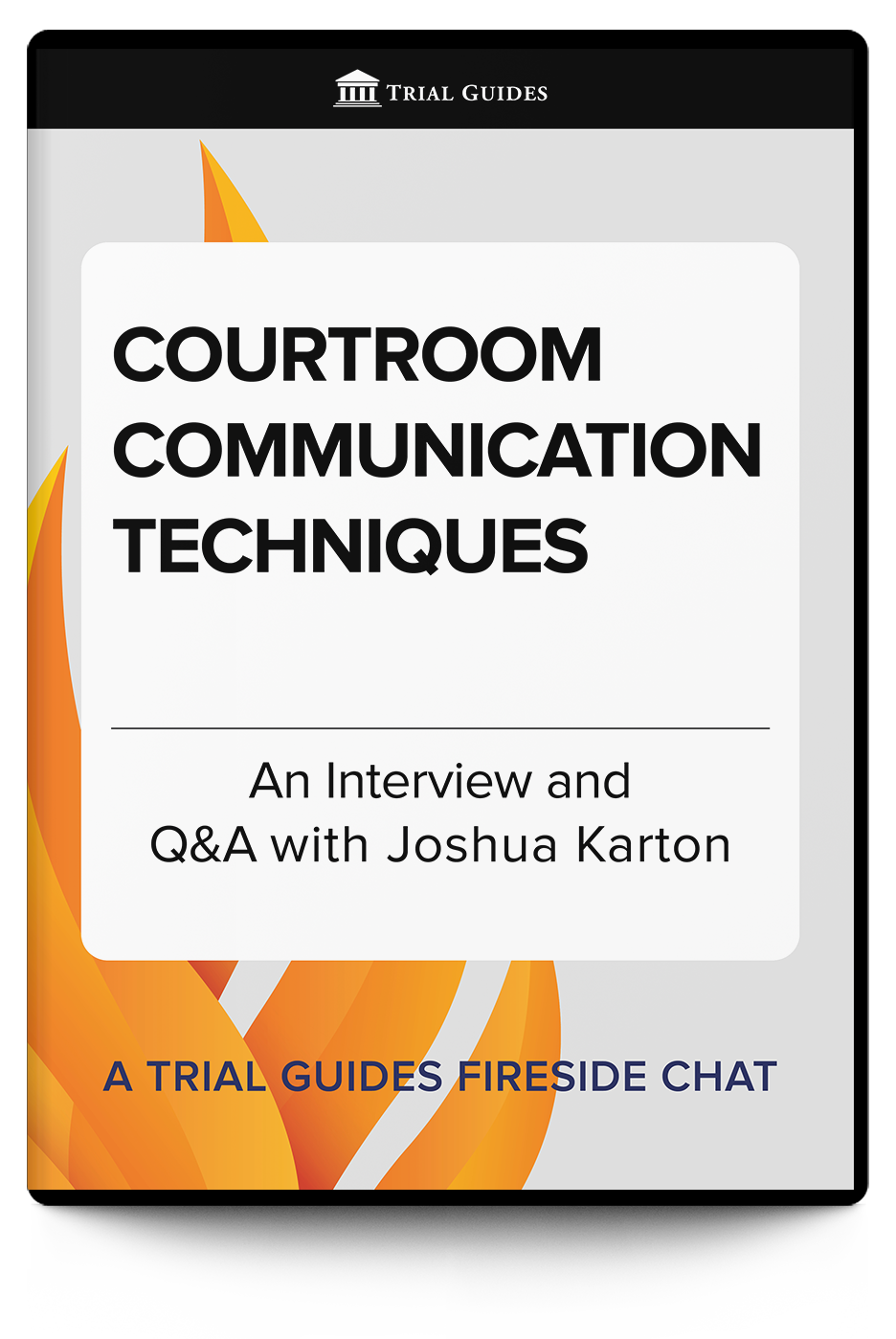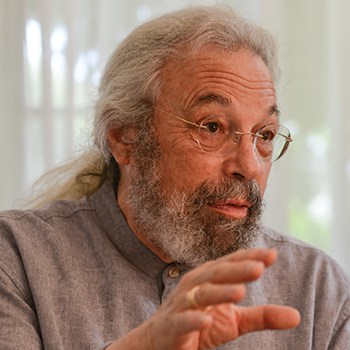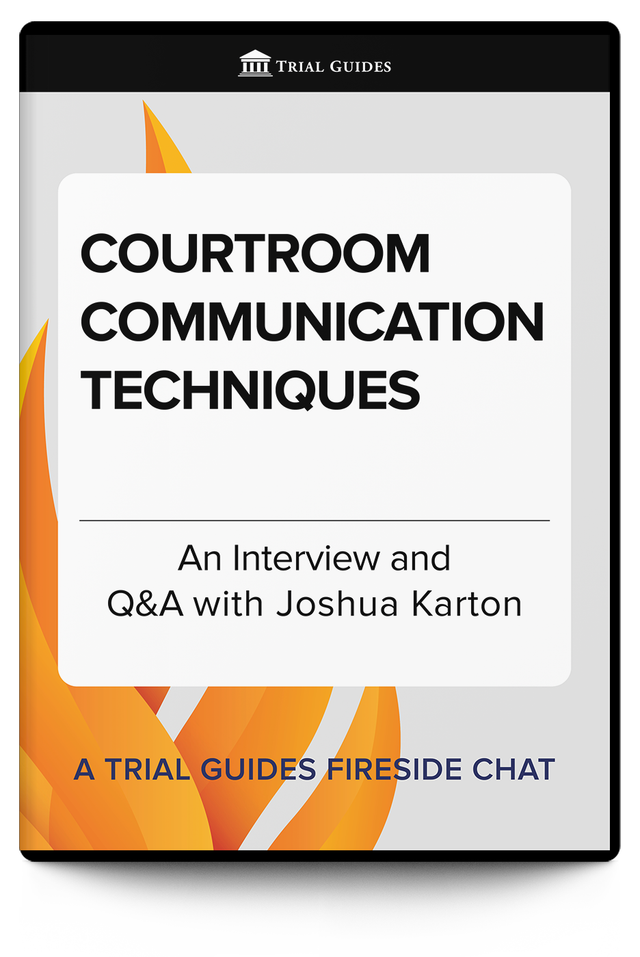Description
Description
In this interview, Joshua Kartion, nationally renowned trial consultant and co-author of Theater for Trial, discusses how lawyers can improve their performance in the courtroom. As a trial consultant, Karton has spent decades working with expert witnesses, trial attorneys, and anyone else who speaks in a courtroom in a range of cases from local county venues to the Supreme Court.
Karton discusses how both theater and trial are live human events where everyone who is involved has a significant role that cannot be duplicated. When it comes to jury selection, an attorney’s challenge is to form a collaborative relationship with people they’ve just met who hold ultimate power. While there is no single way to build that trust, finding something to respect about each juror will help you convey that you respect their right to have their beliefs. When the jurors respond to your questions, you need to behave as if their answers matter to you. Karton also addresses tips for effectively communicating to jurors without dumbing down arguments will help create this communicative relationship, offering simple examples like speaking as if you're talking to a family member rather than a law school professor. Karton also discusses the importance of taking time to work with and prepare, expert witnesses so they know what to expect during cross-examination, and how it will help them withstand the defense’s assault and improve your case.
Throughout this program, Karton shares strategies on:
- How to craft your opening statement so you can unfurl your story in an effective way
- Being selective with the information the jurors need to hear versus the information you want them to know
- Why using the present tense is best
- How to “stand in it” with your client
- Why you shouldn’t read your opening and closing statements to the jury
- How playing can help you be a better lawyer
After the interview, Karton answers listener questions on a variety of topics, including:
- When working with a jury, would you use a visual example of profanity?
- Vocal warm up techniques
- Recommendations for coping with stage fright
- How to practice connecting with jurors through eye contact
- The use of PowerPoint in trial
- What’s the best way to dramatically construct your opening statement?
- Where to begin the story
- The use of suspense and omission during opening statement
- The role Karton plays when working with a trial lawyer on a specific case
- How to address the racial and ethnic background of a plaintiff when asking for compensation for the loss of a loved one in a predominantly white, conservative jurisdiction
- Which elements of theater and film to avoid in trial
- What trial lawyers can learn from how Spence tries cases
Learning to communicate effectively with different people is essential for a successful trial lawyer. Karton offers learnable tactics that will help better your relationships in the courtroom and improve your case outcomes.
Please Note: Audiobooks are accessed through the “Trial Guides Bookshelf” in your account page. Or through the “Trial Guides App for Lawyers” available from Google Play or the Apple App Store.
Click here for further information on Audiobooks
*This interview was originally offered to customers as part of our Trial Guides LIVE Fireside Chat series. The content has been remastered and edited for brevity and clarity.
Author
Author
Details
Details
Audio Digital Download: 120 minutes; 1st edition (2021)
Publisher: Trial Guides, LLC




